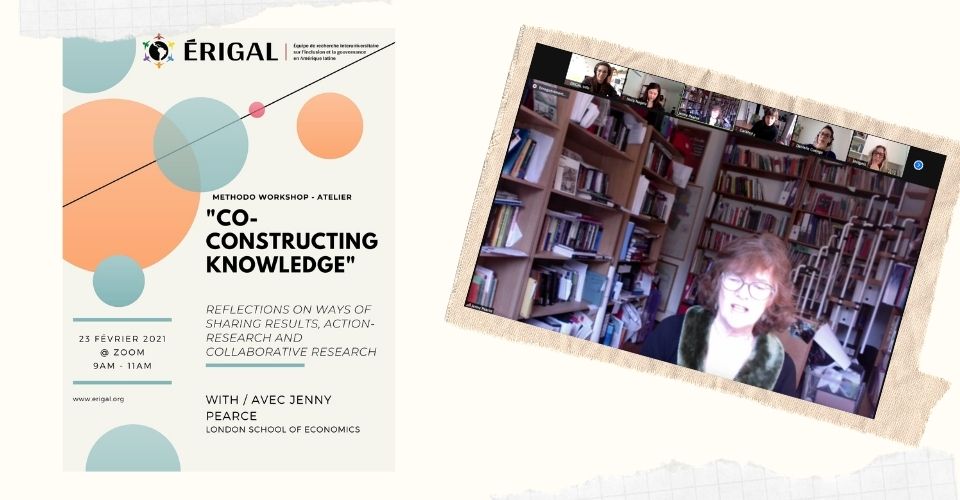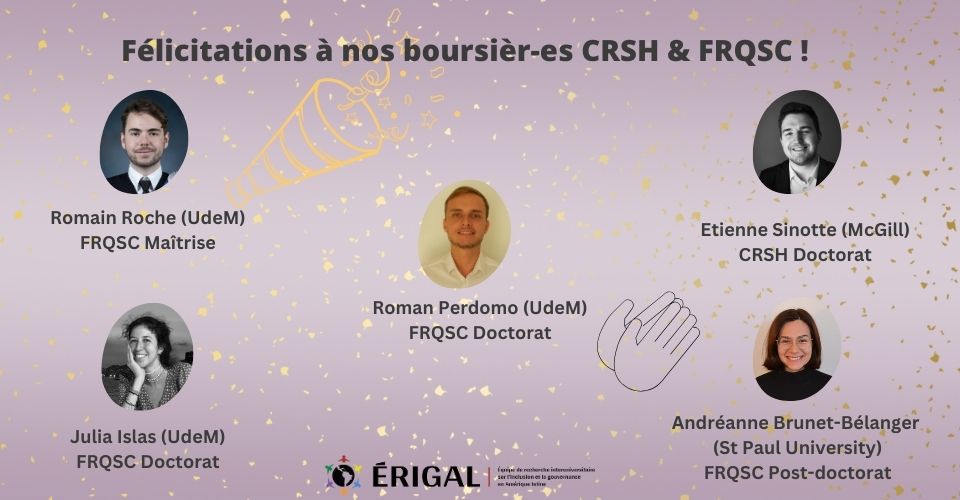To what extent is it possible to co-construct knowledge? Following-up on the last ERIGAL’s methodo debate

In the continuity of the ERIGAL’s last methodological workshop and to reflect on the idea of co-constructing knowledge, we invited Jenny Pearce (LSE, United Kingdom) to feed the group's thoughts.
On this occasion, Jenny Pearce presented her trajectory in participatory action research, which she has promoted in her work since the 1980s, an approach that is largely oriented towards social change from a grassroot perspective. She then insisted on the fact that a pre-existing context of social mobilization facilitates the implementation of this type of approach. Also, Prof. Pearce underlined the tension that exists between an interactive method and the traditional extractive process in the social sciences. Finally, she concluded by showing that participatory action research allows us to co-produce rich and deep knowledge to which we would not otherwise have access, but that it implies an intense commitment, not only political but also often emotional.
Next, three ERIGAL’s professors shared their own experiences in co-constructing and sharing knowledge. Thomas Collombat first explained the knowledge transfer relationships he had with some of his research participants, amongst them union leaders. He invited us to ask ourselves "who are we talking to?", implying that we should be aware of the position of the individuals with whom we talk in the context of our research. Subsequently, Jean François Mayer drew on his experience working with a grassroot union of domestic workers in the city of São Paulo. In positioning himself at the junction of cooperative inquiry and action research, he emphasized several elements: (1) the necessity of trust-building relationships prior to any cooperative approach; (2) the need for a convergence of interests between the researcher and the participants; and (3) participating in positive change. Finally, Dan Furukawa Marques, from his experience with the Landless People's Movement (MST) in Brazil, illustrated that it is possible to participate in the search for solutions by asking questions rather than providing ready-made answers.
As usual, we ended up with a new question: what about doctoral students? Can they aspire to access participatory action research tools despite the constraints of time and money?


